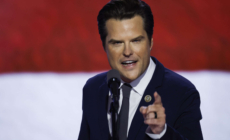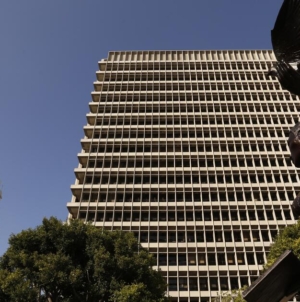-
Tom Brady’s 3 Stars of Week 16, including Vikings’ Justin Jefferson - 11 mins ago
-
How to Watch Pacers vs Warriors, Live Stream NBA, TV Channel - 24 mins ago
-
Alec Baldwin’s ‘Rust’ prosecutors withdraw appeal in manslaughter case, officially ending it - 40 mins ago
-
Inside Syria’s torture chambers with ex-prisoner - 45 mins ago
-
Joel Embiid ejected with 2 technicals in game vs. Victor Wembanyama and Spurs - 56 mins ago
-
Rudy Giuliani Hawks Rudy Coffee While Dressed as Santa Amid Legal Woes - about 1 hour ago
-
Trial of former D.A. advisor on hold after appeals court steps in - about 1 hour ago
-
Can the Cowboys’ late-season surge help Mike McCarthy keep his job? - 2 hours ago
-
Who is the Nordstrom Family? Department Store Goes Private in $6.25 Billion Deal - 2 hours ago
-
Governor helps secure $250 million to help fix the Tijuana River sewage crisis - 2 hours ago
Lyft to pay $2.1 million after misleading drivers about pay, FTC says
When Lyft faced a driver shortage in 2021, the ride-hailing company launched a major marketing campaign to lure drivers with eye-catching earnings — up to $43 an hour in Los Angeles, $41 in Portland and $33 in Atlanta, according to the Federal Trade Commission.
What these advertisements failed to mention was that only 1 in 5 drivers were actually making these rates, the FTC said.
On Monday, the agency and the Department of Justice announced that Lyft had agreed to pay a $2.1-million civil penalty to settle a complaint alleging that it made false and misleading statements about drivers’ earning potential and to refrain from making such claims in the future. As the complaint was brought by the government, the penalty will be paid to the U.S. Treasury and drivers will not see any of the money.
FTC Commission Chair Lina Khan pointed out that, in the absence of salary or a set hourly pay rate, workers rely on gig companies’ marketing to gauge their earning potential. Khan issued a statement alongside Commissioners Rebecca Kelly Slaughter and Alvaro Bedoya.
“The stakes are high. Americans are making serious life decisions — such as whether to leave a job or forgo an opportunity — and their livelihoods are on the line,” the commissioners stated. “Unfortunately, the FTC’s work here shows that unfair or deceptive practices are all too common.”
Lyft said that it recognized “the importance of transparency in maintaining trust in the communities we serve” and promised to “ensure that what we say about driver earnings in our advertising is clear.”
In addition to advertising that misled drivers on hourly pay rates, the FTC also said Lyft’s “earnings guarantee” program was misleading.
This program promised big payoffs for completing a certain number of rides within a set time period, such as $975 for completing 45 rides in a weekend, according to the FTC.
What many drivers did not realize was that Lyft would not be giving them a $975 bonus but merely paying the difference between what they had already earned and what the program guaranteed.
According to the complaint, Lyft internally acknowledged that “the face values [of the ads] are much higher than the actual payout” and received thousands of complaints a month from drivers who hit the target and were upset to find they did not receive a bigger bonus.
“This [is] unacceptable and not fair,” wrote one driver in a complaint to the company. “[Lyft] should pay their driver[s] as stated, it shows I completed the task. As the driver, I expected to be paid for the service I rendered.”
Lyft allegedly continued its advertising practices even after the FTC informed the company that its earnings claims were unlawful in October 2021, according to the complaint.
Under the settlement, Lyft must clearly notify drivers about the terms of its “earnings guarantee” offers and back up any claims it makes about drivers’ pay with evidence.
“Lyft drivers deserve accurate information about how much they will be paid for the work they do,”Samuel Levine, director of the FTC’s Bureau of Consumer Protection, said in a statement. “Our settlement with Lyft bans exaggerated earnings claims and underscores the FTC’s commitment to ensuring gig workers are treated fairly.”
Source link































